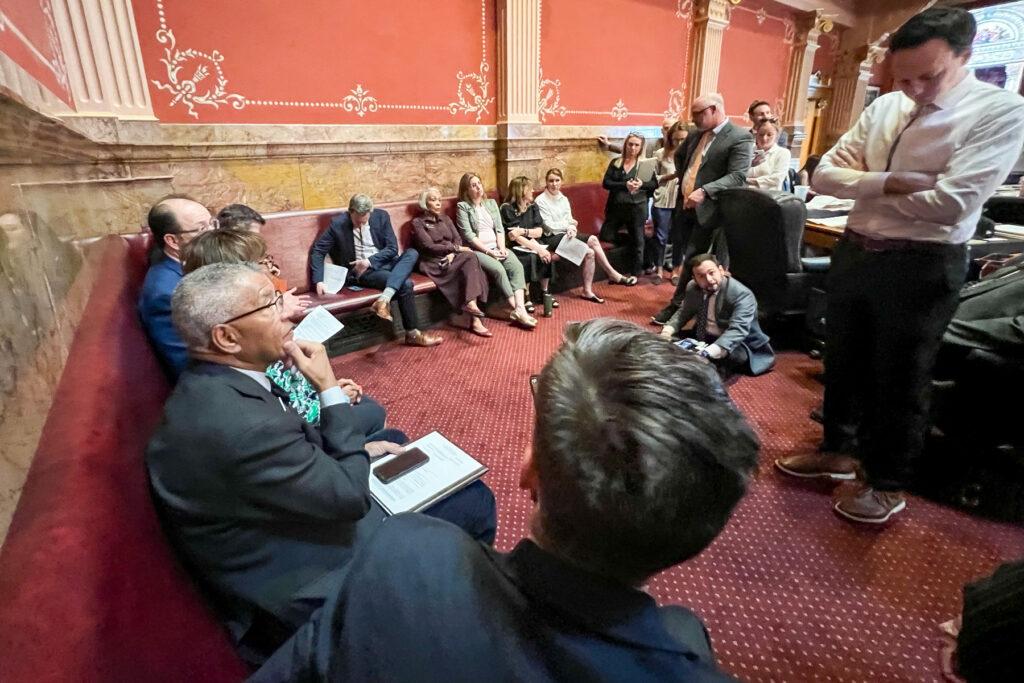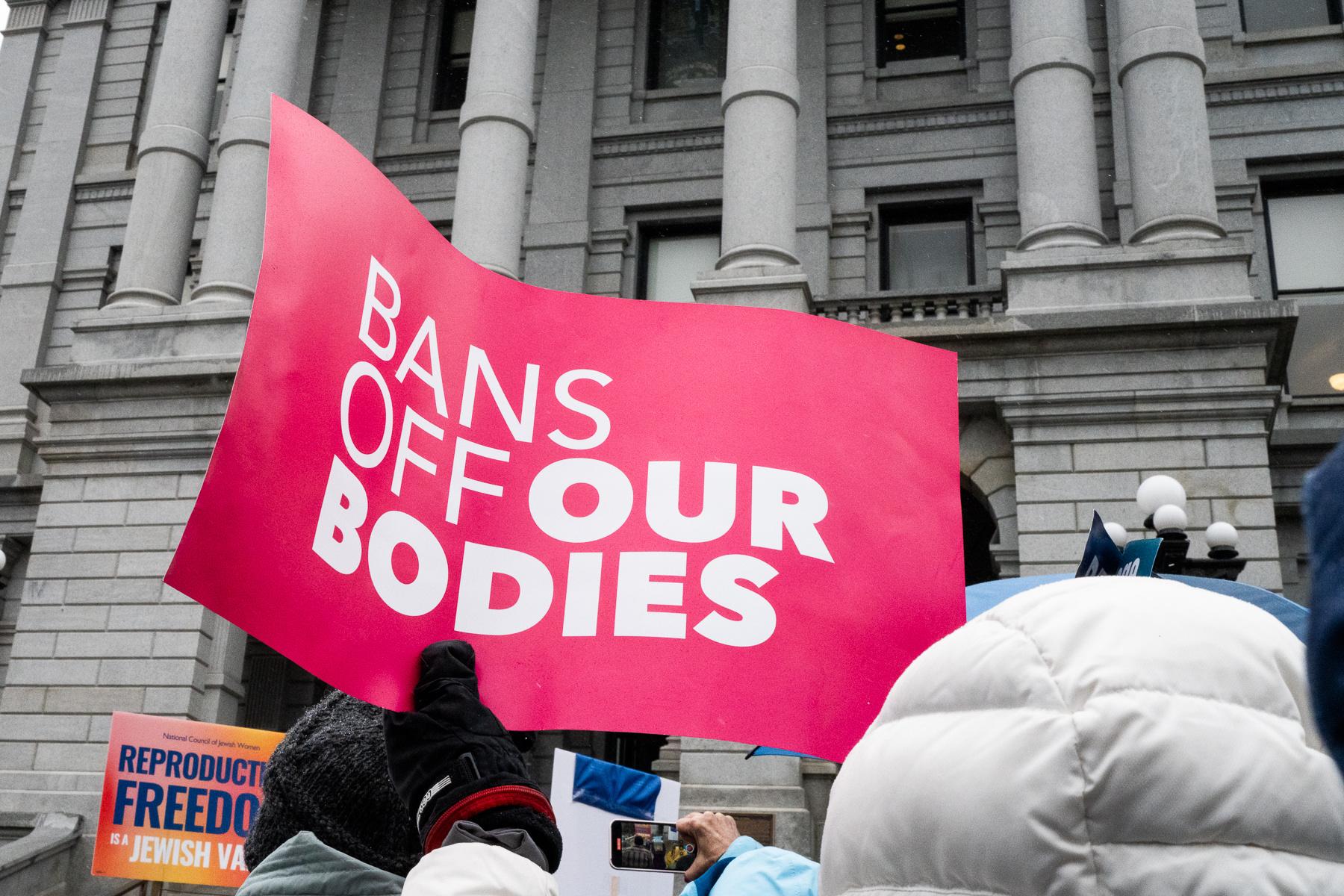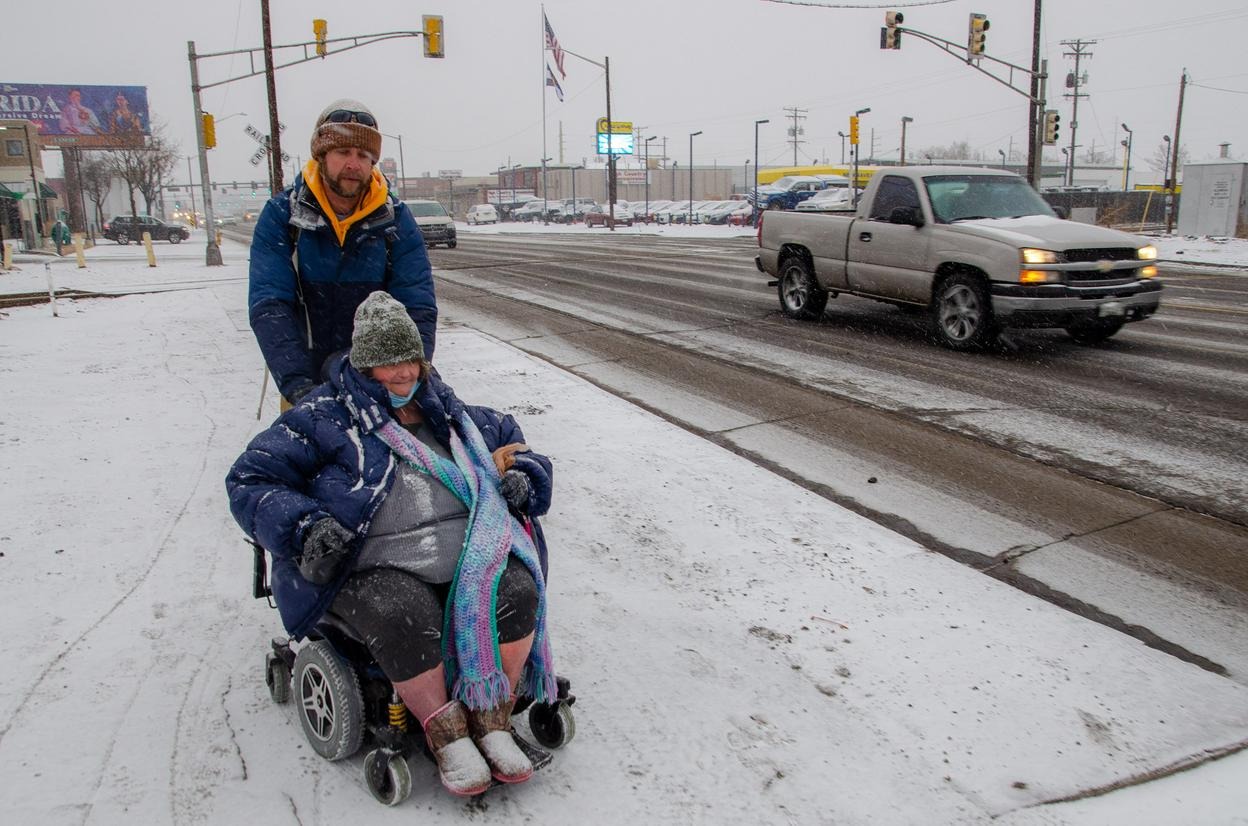
State lawmakers have introduced just more than 700 bills this legislative session.
As of Friday morning, with only a handful of days left to work, the legislature still hadn’t taken final action on more than 300 of them. The rest had either been defeated or passed on to the governor’s office.
Some of those outstanding bills are relatively uncontroversial and just need a few quick votes to get over the finish line — others are destined for defeat.
But lawmakers’ laundry list in these final days also includes some of the biggest and most controversial measures, including ones that would: create billions of dollars of tax credits and tax cuts; allow denser construction in cities; put new regulations on guns; and more.
“It’s gonna be really tough. There's a lot of bills. There's a couple of big fights. But overall I think it's manageable,” said Senate President Steve Fenberg, pausing for a brief interview as he hustled up a Capitol stairwell Friday.
Land-use standoff
Gov. Jared Polis has led a charge, once again, to allow denser residential development in Colorado cities — a way to grow the state’s housing supply.
And once again, that proposal is running into some of its fiercest pushback in the state Senate, where Democratic lawmakers representing suburban areas are asking for big changes.
The land-use bills now in the Senate would:
- Eliminate minimum parking requirements for residential development in some Colorado cities
- Require some cities to upzone around transit lines, allowing denser residential development
- Allow property owners to build accessory dwelling units in many cities
Sen. Rachel Zenzinger, a Democrat, has joined with other suburban Democrats and with Republicans to fight back against the bills, warning the sponsors to expect a fierce 11th hour debate.
“I probably can't prevent these bills from passing. So that means that I am just looking to do whatever I can to improve upon them to the degree that I can,” she said. And if the bills do pass, she said, they’ll likely be challenged by lawsuits.
Zenzinger doubts she has the votes to remove the central and most controversial concept in each of those bills — “preemption,” or the idea that the state can override local governments’ authority to make certain decisions about development.
But she and others have been working on numerous amendments to narrow them down. Meanwhile, the sponsors and their allies, including Gov. Jared Polis, will be trying to lock down the votes to finally get major changes to the state’s approach to growth.
“We can't undo what has been done. But we do need to be smarter in our land-use decisions going forward,” said Sen. Nick Hinrichsen, a sponsor of the bill to eliminate parking minimums, at an earlier hearing.
Furious negotiations over property taxes
Last week, Sen. Chris Hansen announced that he had a plan for property taxes. He had drafted a lengthy bill that included short-term discounts for homeowners, long-term cuts for commercial properties and numerous permanent changes to how property taxes work in Colorado.
A week later, that bill still hasn’t been introduced formally. That’s because lawmakers and the governor’s office have been involved in complex, fast-paced negotiations with numerous parties.
“There has been a lot of conversations and a lot of work happening and I think we're finally at the point where we need to put something forward,” said House Minority Leader Rose Pugliese.
The influential business group Colorado Concern is calling for more significant cuts to residential and commercial property tax rates. Hansen and others have pushed back, warning that going too far would be costly, especially to schools. If it’s not satisfied, Colorado Concern has said it will go to the ballot with a more dramatic proposal this November.
The question of how to handle school funding from property taxes is one of the topics still up for debate, said Senate Minority Leader Paul Lundeen. He could support giving school district funding some special consideration but doesn't think schools should be “relieved from the cap altogether,” he said, referring to a proposed new cap on property tax revenues.
“My argument is, keep the money in the people's paycheck. Government is going to be just fine,” he said.
Hansen said the gap between some of the different groups’ positions was shrinking, but couldn’t say if they’d reach an agreement that would result in the cancellation of some or all of the ballot measures.
“I’m not focused on trying to make everybody happy. As everyone knows, that's a fool's errand,” Hansen said. “But I am really focused on working hard with my colleagues and dozens of stakeholders to try to get as much property tax relief as we can for the people in Colorado.”
Any bill would have to be introduced by Monday, otherwise it wouldn’t have enough time to pass.If a property tax measure doesn’t pass, rumors are running rampant that Polis might call yet another special session for property taxes.
What else is on the table?
Dozens of other big proposals are still in progress in these final days, including:
- A combination of bills that could cut income taxes while also creating significant new tax credits for lower-income families
- A series of gun bills that are pending in the Senate, including a ban on purchasing “assault” style weapons; a ballot measure for a new tax on guns and ammo; permitting requirements for firearms dealers; and insurance requirements for firearms owners
- Regulation of artificial intelligence
- A number of workers’ rights measures
And that’s just a sampling.
“There's a lot to be negotiated at the end of the session. But I'm really confident that my leadership will pull through here,” said Sen. Jessie Danielson, the sponsor of a labor bill that was in the Senate for hours of debate Friday. But she acknowledged there are likely to be many long nights ahead of Wednesday.
Weekend work ahead
On Friday afternoon, Democrats huddled to try to plan for the weekend. Sen. Tom Sullivan wondered if they might be able to work in shifts, so a few lawmakers could head home to shower and refresh themselves.
But Senate President Steve Fenberg said that would be tough. If enough Democrats stray from the floor during lengthy debates, Republicans could seize the advantage to suddenly force a vote on a bill.

Instead, Fenberg advised Democrats to start working with Republicans — and in some cases, with their own colleagues — to ensure their bills don’t get filibustered. At this point, time is on the opposition’s side, since most of the dozens of remaining bills are eligible for debate on the floor. Fenberg encouraged lawmakers to work with Republicans to minimize their delay tactics.
Both chambers are expected to work this weekend, although Fenberg was hopeful the Senate could take Sunday off.
Rep. Matt Soper, a Republican, said that the end of session has been going better than last year’s “horrific” final sprint — so far.
“We may still be eating late dinners, but at least eating dinner at nine o'clock at night is better than eating at 1:00 a.m.,” Soper said.
Session has to wrap up by midnight on Wednesday night.








